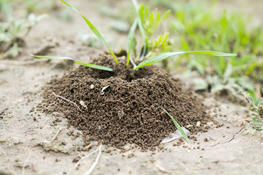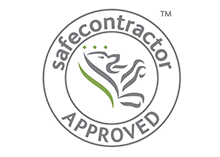

 Ants can present a real nuisance. Even though they commonly live outside and well away from human company, every now and then, they find their way in to our homes and before you know it, you have a trail of ants marching in to your property.
Ants can present a real nuisance. Even though they commonly live outside and well away from human company, every now and then, they find their way in to our homes and before you know it, you have a trail of ants marching in to your property.
A well-ordered community
Most kind of ants live in ordered colonies, where the queen is ‘in charge’. The worker ants are sent to forage for food, something they do on a constant basis and when they do find a delightful source of food, they tell the other worker ants.
Laying a trail of pheromone for the other ants to follow, a worker ant will seek out sugar rich foods; anything from a dollop of jam left on a work surface to a hoarding of rotting fruit and vegetables in a compost heap.
Forming an orderly line, ants will march to the food source and carry up to twice their own weight in food back to the colony every time. They will do this until the food source is gone.
No real issues…
In term of health issues, ants presents no danger to human health other than being a nuisance of having ants all over the work surfaces and the interior of a home. Most ant species, of which there are a few in the UK, are easy to get rid of.
However, there is one ant, the ghost ant, difficult to spot and also difficult to get rid of, that can present some difficulties. This ghost ant, native to warmer climes, seek the warmth of buildings and are common in all kinds of industrial buildings.
Even though they present nothing more than a nuisance, it is imperative that you call in the professional services of a pest control company to rid you of your ant problem.
Just treating the nest is not enough; once that ant colony has disappeared, another one could be back the following year. For this reason, finding and blocking entrances to the ant colony is essential, as well as finding how ants could be gaining access to a property. This is especially important in cases where customers, domestic or commercial, have found they have ongoing issues with ant infestations.







